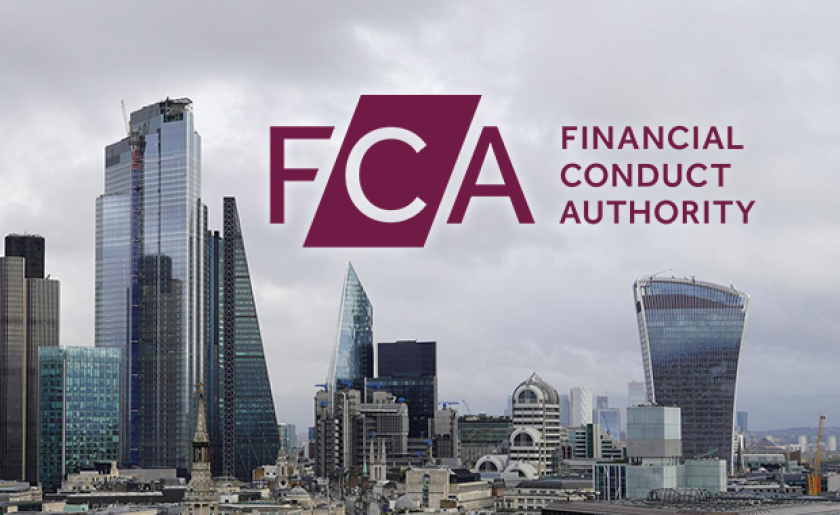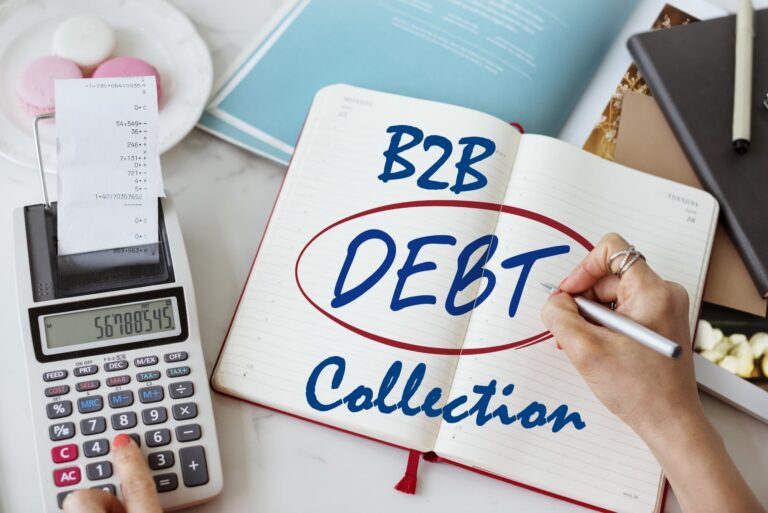Debt Collection in the UK: Master Your Rights in 2024

Introduction
Whether you’re a debtor trying to understand your rights or a business owner looking to recover owed funds, it’s crucial to understand the role of debt collection agencies and the laws that govern their operations. In this article will delve into the intricacies of debt collection agency UK law and the process of debt collection in the UK.
Understanding Debt Collection in the UK
Debt collection is a process that kicks into gear when an individual or a business fails to repay borrowed money. This process can involve phone calls, letters, and even court action if the debt remains unpaid. The entities that carry out this process are known as debt collection agencies.
Debt collection agencies are companies that specialize in recovering debts that are overdue or not being paid. These agencies work in two main ways:
- They either collect debts on behalf of the original creditor (the entity that first lent the money).
- They buy debts from creditors and then try to recover the full amount themselves.
The process of debt collection typically begins with the original creditor. If you owe money on a credit card, for example, the credit card company will first attempt to recover the debt themselves. This could involve sending letters, making phone calls, or setting up a repayment plan. If these attempts are unsuccessful, the creditor may then pass the debt onto a collection agency.
Once a debt is in the hands of a collection agency, they will start their own attempts to recover the money. This could involve more letters and phone calls, and in some cases, they may even take court action. While these agencies are persistent in their attempts to recover debts, there are rules and guidance they must follow. These rules ensure they are not harassing the debtor or contacting them at unreasonable times.

The Law Governing Debt Collection Agencies in the UK
Debt collection agencies in the U.K. are regulated by the Financial Conduct Authority (FCA). The FCA is a regulatory body that oversees financial markets and firms to ensure they are operating in a way that is fair, transparent, and in the best interests of consumers.
The FCA sets out rules and guidance for debt collection agencies to follow. These rules cover a range of areas, including how agencies should communicate with debtors, how they should handle disputes over the amount of debt owed, and how they should treat vulnerable customers, such as those with mental health conditions.
For example, the FCA’s Consumer Credit Sourcebook (CONC) states that a debt collection agency must have clear policies for customers in arrears and particularly vulnerable customers. This includes customers who have ‘mental health difficulties’. It also outlines what kind of behaviour is not acceptable and how to know if a debt collection agency is harassing you, and what to do[1].
If a debt collection agency breaches these rules, the FCA has the power to impose sanctions, both civil and criminal. These could include suspending or withdrawing their licence to operate and/or setting a fine.
In addition to the FCA, the Financial Ombudsman Service also plays a role in overseeing debt collection agencies. This service helps to resolve disputes between consumers and financial businesses, including those involving debt collection. If a consumer feels they have been treated unfairly by a debt collection agency, they can make a complaint to the Financial Ombudsman Service.
Understanding the laws and regulations surrounding debt collection in the UK is crucial for both debtors and creditors. For debtors, it helps to know your rights and what to expect if you are contacted by a debt collection agency. For creditors, understanding these laws can help ensure you are operating within the law and treating customers fairly.
Key Governance Bodies Businesses need to Know Regarding Debt Collection in the UK.

Understanding the Role of the FCA and Other Bodies in Debt Collection
Debt collection is a necessary part of the financial ecosystem, ensuring that creditors are able to recover funds that are rightfully theirs. However, it’s a process that must be conducted with fairness, respect, and within the bounds of the law. In the UK, several regulatory bodies ensure that debt collection agencies operate ethically and legally. Let’s delve into the roles of these authorities and how they impact the debt collection process.
Financial Conduct Authority (FCA)
The Financial Conduct Authority is the watchdog of the financial services industry in the UK. It plays a pivotal role in protecting consumers by regulating the conduct of nearly 60,000 businesses. Debt collection agencies fall under the FCA’s purview, which means they must adhere to strict rules that govern their operations. If a debt collection agency steps out of line—perhaps by harassing debtors or misrepresenting the amount owed—it risks severe penalties, including hefty fines or the revocation of its authorization to operate. The FCA’s regulations are designed to ensure that while creditors recover what they are owed, debtors are treated with dignity and respect.
Information Commissioner’s Office (ICO)
In our digital age, personal data is a valuable commodity, and its protection is paramount. The Information Commissioner’s Office oversees the enforcement of data protection laws, including the General Data Protection Regulation (GDPR). Debt collectors handle sensitive personal information, and the ICO ensures they do so responsibly. If a debt collection agency is careless with data, it could face significant fines under GDPR. This serves as a strong deterrent against the misuse of personal information and helps maintain public trust in the financial services sector.
Financial Ombudsman Service
Sometimes, disputes arise between consumers and debt collectors that cannot be resolved through direct communication. In such cases, the Financial Ombudsman Service steps in as an impartial adjudicator to settle the matter. This service provides consumers with a free, fair, and accessible means to escalate their complaints. If the Ombudsman finds in favor of the consumer, it can order the debt collector to make things right, which might include compensation for the debtor. This service underscores the importance of fair play in debt collection.
Insolvency Service
When individuals face severe financial distress, they may opt for formal insolvency solutions like bankruptcy or Individual Voluntary Arrangements (IVAs). The Insolvency Service oversees these processes, providing a lifeline to those who are overwhelmed by debt. Once a statutory debt solution is in place, debt collectors must cease their collection activities. This ensures that debtors are given the opportunity to resolve their financial issues without the added pressure of ongoing collection efforts.
Trade Associations
Trade associations, such as the Credit Services Association and the Finance & Leasing Association, play a crucial role in maintaining standards within the debt collection industry. They set codes of practice for their members, which often exceed the statutory requirements. Breaching these codes can lead to sanctions, including expulsion from the association. Membership in these bodies is a badge of honor for debt collection agencies, signaling their commitment to ethical practices.
Local Trading Standards
Lastly, Local Trading Standards offices are the frontline defenders of consumer rights at the local level. They have the power to investigate and prosecute unfair commercial practices, including those related to debt collection. By ensuring compliance with consumer protection laws, they help maintain a fair marketplace for all participants.
Short-Term & Long-Terms Debt Collection in the UK,
| Short-Term Debt Collection | Long-Term Debt Collection | |
|---|---|---|
| Definition | Attempting to collect debt owed in the past 1-6 months | Attempting to collect debt that has been overdue for over 6 months |
| Main Methods | Phone calls, letters, potential legal action if unresponsive | Referring account to debt collection agencies or debt purchasers |
| Regulations | Stricter conduct rules around persistence of contacts | Wider range of legal debt recovery methods available |
| Fees Added | Typically none or small late fees | Can add collection charges and higher interest |
| Impact on Credit Score | Missed payments start negatively affecting score | Long overdue debt severely damages credit score |
| Debtor Mindset | May have temporary cash flow issue | Often unable to repay due to insolvency |
| Likelihood of Repayment | Higher as debt still recent | Lower as debtor unable to repay |
Short-term debt collection involves creditors attempting to collect relatively recent debts directly using letters, calls or legal threats. Long-term collection happens via third parties like debt collection agencies and typically uses more advanced legal procedures to recover old, unpaid debts from insolvent debtors. The key difference lies in the recency of the debt and consequently the methods used and likelihood of repayment.
Commercial debt Collection in the UK

In the world of business, cash flow is king. But what happens when invoices go unpaid and your business is left in the lurch? This is where business-to-business (B2B) debt collection comes into play. In this article, we’ll delve into the intricacies of B2B debt collection in the UK, exploring its challenges, best practices, and key differences from business-to-consumer (B2C) debt collection.
The Regulatory Landscape of B2B Debt Collection
Unlike B2C debt collection, which is heavily regulated by the Financial Conduct Authority (FCA), B2B debt collection in the UK operates in a less regulated environment. While there are laws against unfair commercial practices, there’s no overarching statutory regime comparable to B2C. This gives B2B debt collectors more flexibility in their approach, but it also places a greater emphasis on ethical conduct and fair practices.
Solutions to B2B Debt Collection Challenges in the UK
Financial Instability of the Debtor Company: When a debtor company is financially unstable, it can be a real headache for businesses trying to collect debts. One way to mitigate this risk is by exploring various credit solutions such as bank loans, trade credit, invoice financing, asset-based lending, or debt restructuring. These options can help manage cash flow and keep the debtor company afloat. Additionally, cost-cutting measures, operational efficiency optimization, and exploration of new revenue streams can strengthen the debtor’s financial position. In severe cases, a corporate debt restructuring strategy may be necessary, which could involve negotiating with lenders to lower interest rates, extend repayment periods, or modify repayment terms.
Resolving Invoice Disputes: Invoice disputes can be a major roadblock in the debt collection process. To handle these effectively, it’s important to maintain open, honest, and professional communication with the client. Listen to their concerns, clarify any misunderstandings, and work collaboratively towards a resolution. If the dispute is due to pricing errors, a sales manager should take control of the payment dispute. In some cases, it may be necessary to propose a mutually beneficial resolution or enforce legal rights.
Establishing Direct Contact: Establishing direct contact with the appropriate person within a debtor company can be a challenge, especially if the company has multiple offices or branches. To overcome this, it’s beneficial to script your prospective debt collection call opening, record and listen to yourself, and make adjustments as needed. It’s also important to stay focused during the call and always bring the conversation back to the point of getting paid the money rightfully due. If all else fails, consider employing debt collectors or lawyers. A letter from a lawyer or agency can often prompt the debtor to realize the seriousness of the situation and prompt payment.
If you’re facing challenges with B2B debt collection, don’t hesitate to seek professional help. Contact a UK debt expert on ExpertPlanet.io today. A pool of experienced professionals can provide you with tailored advice and solutions to help you navigate the complexities of B2B debt collection in the UK. Don’t let unpaid debts hinder your business growth – reach out to an expert today.
Best Practices for B2B Debt Collection in the UK
Navigating the complexities of B2B debt collection in the UK requires a strategic approach that balances firmness with professionalism. Here are three best practices that can help businesses improve their chances of successful debt recovery, complete with examples and a call to action for those seeking expert assistance.
Maintain Regular and Consistent Communication
Regular communication with the debtor is crucial. For example, a UK-based manufacturing company implemented a system where they sent automated reminders every two weeks for invoices nearing their due date, and immediately contacted the debtor if a payment was missed. This proactive approach helped them reduce late payments by 25% within six months.
Example: A software development firm in London had issues with clients not paying on time. They started sending out polite but firm email reminders a week before the due date, and followed up with a phone call if the payment was not received within a week after the due date. This consistent communication helped them recover 90% of their outstanding debts within three months.
Prioritize Professionalism and Ethics
Professionalism and ethics are paramount throughout the debt collection process. A UK-based marketing agency once faced a situation where a long-term client was late on a significant payment. Instead of resorting to aggressive tactics, they scheduled a meeting to understand the client’s financial difficulties and worked out a payment plan. This approach not only secured the payment but also strengthened the business relationship.
Example: A construction supplier in Birmingham encountered a debtor who was disputing the quality of materials supplied. Instead of immediately escalating to legal action, the supplier engaged in a series of discussions to understand the issue and provided additional support to rectify the perceived problems. This ethical approach resolved the dispute amicably and ensured future business with the debtor.
Employ Debt Collection Agencies When Necessary
If internal efforts fail, employing a professional debt collection agency can be a valuable step. For instance, a small UK-based IT service provider had exhausted all attempts to collect a substantial debt from a client. They then turned to a reputable debt collection agency, which successfully negotiated a full payment within two months.
Example: A catering company in Manchester struggled to collect a large outstanding debt from a corporate event. After several unsuccessful attempts, they hired a debt collection agency that specialized in B2B collections. The agency’s professional approach and negotiation skills resulted in a payment plan that was acceptable to both parties, and the debt was fully recovered within four months.
By maintaining regular communication, prioritizing professionalism and ethics, and employing debt collection agencies when necessary, UK businesses can navigate the challenges of B2B debt collection effectively.
If you’re facing challenges with B2B debt collection, professional help is available. Reach out to a UK debt expert on ExpertPlanet.io for tailored advice and solutions. Their team of experienced professionals can assist you in recovering unpaid debts while preserving valuable business relationships. Don’t let debt collection issues disrupt your business—contact an expert today.
When all else fails, legal action may be necessary. Yet, this is generally seen as a last resort due to the costs and time involved. Before heading to court, businesses often exhaust all other avenues, including mediation and arbitration, to reach a settlement.
B2B debt collection in the UK, while less regulated, still requires a careful approach that balances firmness with fairness. By adhering to ethical best practices and maintaining open lines of communication, businesses can recover debts while preserving valuable commercial relationships. Understanding the nuances of commercial debt collection is key to navigating this complex aspect of the business world with confidence and integrity.
B2B vs B2C Debt Collection: Key Differences
| Commercial debt collection | Consumer debt collection | |
|---|---|---|
| Main regulations | No direct regulations, but collectors expected to follow ethical best practices outlined by professional associations | Regulated by Financial Conduct Authority (FCA) rules on treating customers fairly |
| Main debt collection methods | More persistent contacts, statutory demands, charging orders, using enforcement agents | Letters, phone calls, potential court action if unresponsive |
| Harassment standards | Higher bar for what constitutes coercion/harassment | Lower bar, stricter limits on persistence of contacts |
| Fees and charges | Can add reasonable fees as long as contractually agreed | Strict limits, typically max of £100 setup and 8%+ base rate interest |
| Disputes | Creditors must investigate disputes, provide proof | Similar obligations around investigating disputes |
| Vulnerable debtors | Less formal guidance around treatment | FCA rules require policies for treating vulnerable customers fairly |
| Data sharing | Wider ability to share data with other creditors | Stricter data sharing standards |
Free advice from international experts
Dealing with debt collection agencies can be a stressful experience, but understanding your rights and the laws that govern these agencies can help you navigate this process more effectively. Remember, it’s important to seek professional advice if you are dealing with debt collection agencies.
Talk with a UK Debt collection expert today !!
-
What are some examples of long-term debt in the UK

1. Commercial mortgages – Falling behind on payments for an extended period, leading to potential repossession.
2. Business loans – Defaulting on installment payments to banks/alternative lenders for over 6 months.
3. Commercial rent arrears – Accumulating several months or years of unpaid rent to landlords.
4. Long overdue supplier invoices – Not paying suppliers for services/goods after 60-90 days, despite repeated demands.Long-term business debt refers to any unpaid B2B debts that have remained unresolved for over 6 months despite collection attempts. The consequences become more severe the longer debts stay unpaid, ultimately risking insolvency.
-
What are some examples of short-term debt in the UK

1. Late payment of invoices – Not paying a supplier invoice within the agreed payment terms, usually 30-60 days. This can spiral quickly.
2. Business credit cards – Defaulting on minimum credit card payments to providers like American Express or Visa. Interest and fees build rapidly.
3. Merchant cash advances – Not meeting repayment schedules for lump sum cash injections from alternative lenders. Very high effective interest rates.
Bounced checks – Having checks returned unpaid by the bank due to insufficient funds. Can lead to legal action.
4. Tax arrears – Owing and not paying PAYE income tax or VAT to HMRC. Strict deadlines before penalties and interest accrue.Short-term business debt that goes unpaid for 1-6 months and is actively being pursued would qualify.






